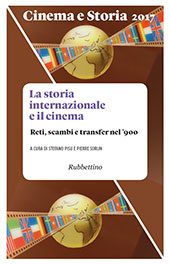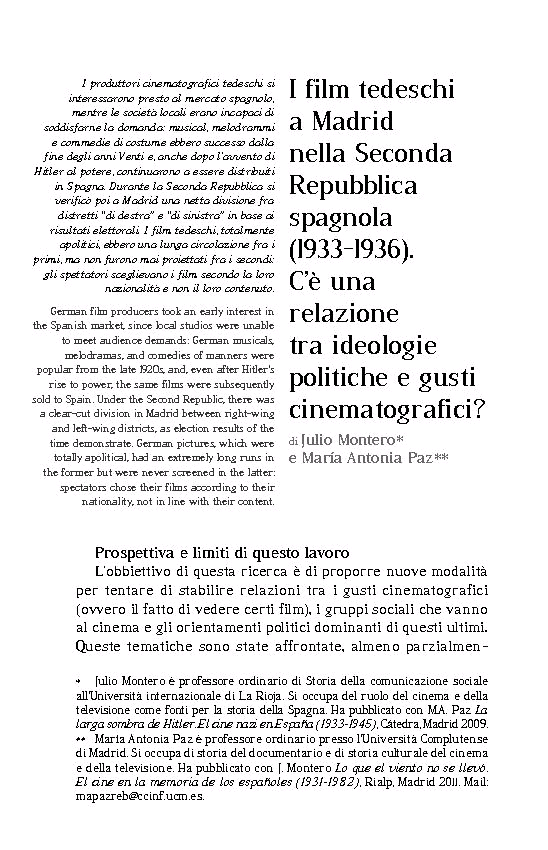I film tedeschi a Madrid nella Seconda Repubblica spagnola (1933-1936) : c'è una relazione tra ideologie politiche e gusti cinematografici?
P. 67-82
I produttori cinematografici tedeschi si interessarono presto al mercato spagnolo, mentre le società locali erano incapaci di soddisfarne la domanda: musical, melodrammi e commedie di costume ebbero successo dalla fine degli anni Venti e, anche dopo l'avvento di Hitler al potere, continuarono a essere distribuiti in Spagna. Durante la Seconda Repubblica si verificò poi a Madrid una netta divisione fra distretti “di destra” e “di sinistra” in base ai risultati elettorali. I film tedeschi, totalmente apolitici, ebbero una lunga circolazione fra i primi, ma non furono mai proiettati fra i secondi: gli spettatori sceglievano i film secondo la loro nazionalità e non il loro contenuto. [Testo dell'editore]
German film producers took an early interest in the Spanish market, since local studios were unable to meet audience demands: German musicals, melodramas, and comedies of manners were popular from the late 1920s, and, even after Hitler's rise to power, the same films were subsequently sold to Spain. Under the Second Republic, there was a clear-cut division in Madrid between right-wing and left-wing districts, as election results of the time demonstrate. German pictures, which were totally apolitical, had an extremely long runs in the former but were never screened in the latter: spectators chose their films according to their nationality, not in line with their content. [Publisher's text]
-
Articles from the same issue (available individually)
-
Information
DOI: 10.1400/250424
ISSN: 2283-9852



